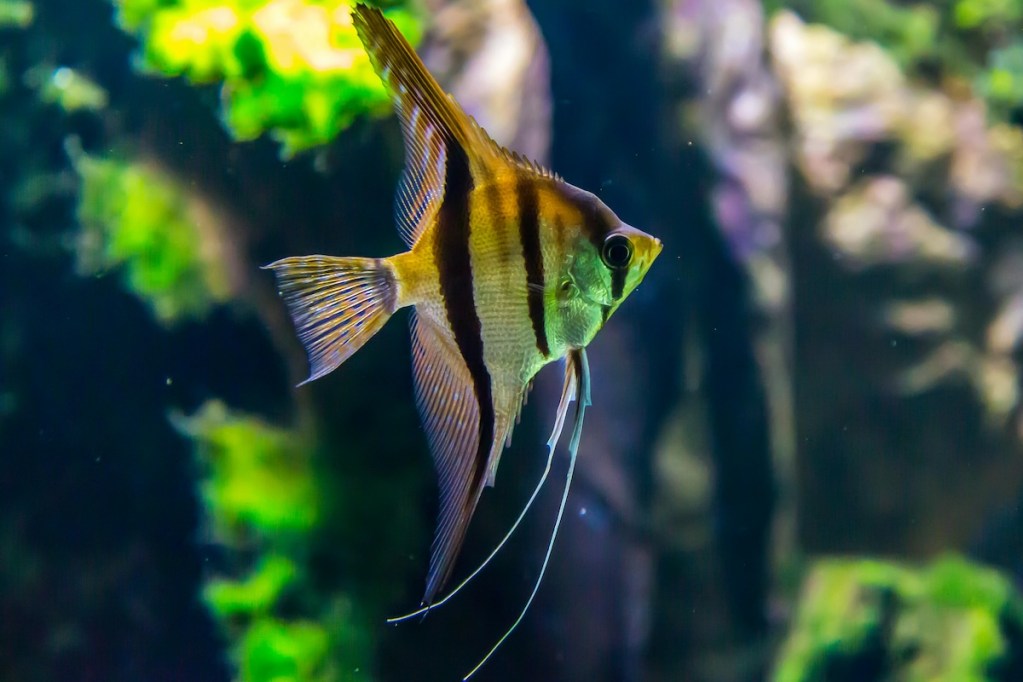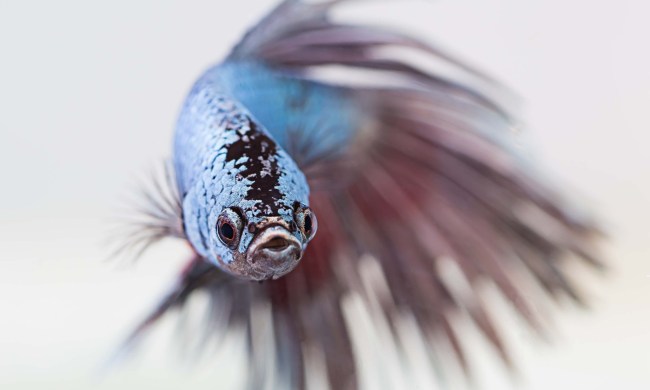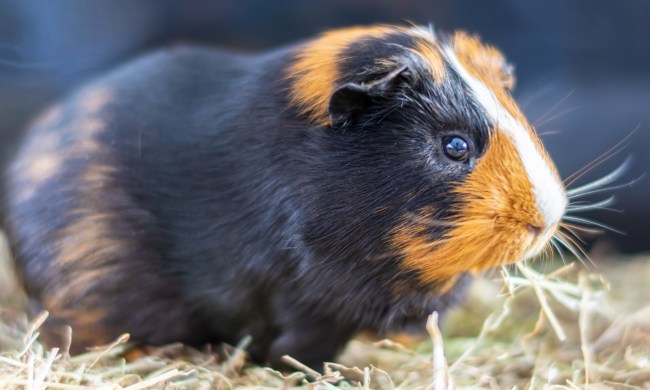You might see your little swimmers still and peaceful in your tank and think that they’re sleeping. But do fish sleep? It’s complicated because first we have to define what sleep even means. Research says that many animals do rest and that slowing down intermittently helps with all sorts of processes, including things like fighting disease and recharging energy. So while fish don’t sleep in the same way humans and most other mammals do, they still rest periodically to help them stay sharp.
How do fish sleep?
First, let’s talk about our sleep. You’ll notice that when we go down for the night, we almost always close our eyes and our furry friends do as well. That’s thanks to our neocortex, which shuts off so we can get some shut-eye every night. Dogs and cats operate much the same, though they sleep at different times than we do (practically all day, in the case of cats).
Fish have neither a neocortex nor eyelids, meaning they can’t sleep exactly the same way as humans. Researchers at Stanford studied fish brains and found that they do seem to be sleeping, though aquatic animals likely don’t enter REM state (dolphins, too, have slightly different sleep methods). Sharks take this even further by swimming even during sleep — if they stop, they won’t be able to keep breathing!
When do fish sleep?
You may be surprised to discover that fish usually sleep at night and spend the day awake. That’s great for us to get prime-time aquarium viewing. Still, some fish are up at night, especially a few species of catfish that will do the bulk of their feeding in the wee hours of the morning. Interestingly, a few fish don’t sleep at all, including some species of cavefish that live entirely in darkness, and many baby fish, which don’t develop this ability until adulthood.
How do I know if my fish are sleeping?
As with all animals, you probably want to leave your tiny sea creatures alone while they get some rest. You don’t want to get woken up from a nap, either, after all. Check for signs that they’re catching a few z’s. Fish are possibly sleeping when they stay motionless for a while, lay down on something in the tank, and don’t respond to things going around them. So if you walk up to your fish house and see one snuggled up in the corner, they’re probably fine. Come back later to make sure they’ve moved rather than tapping on their home to rouse them.
While fish might not sleep as humans do, they still rest, usually daily and at night. Don’t be surprised if you see your tank inhabitants snoozing off and on throughout the day and much of the night. Also, set up your area to make sure the fish have a quiet, dark place to retreat to and that the ambiance in the evening gives off a sleepy vibe.




